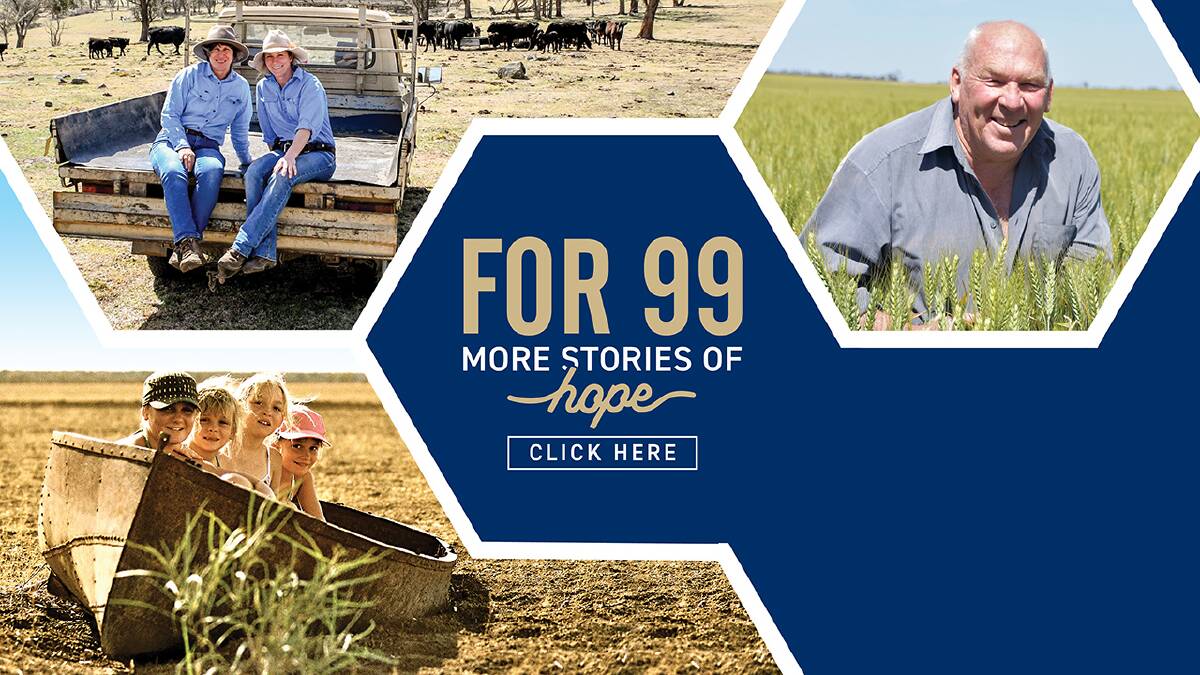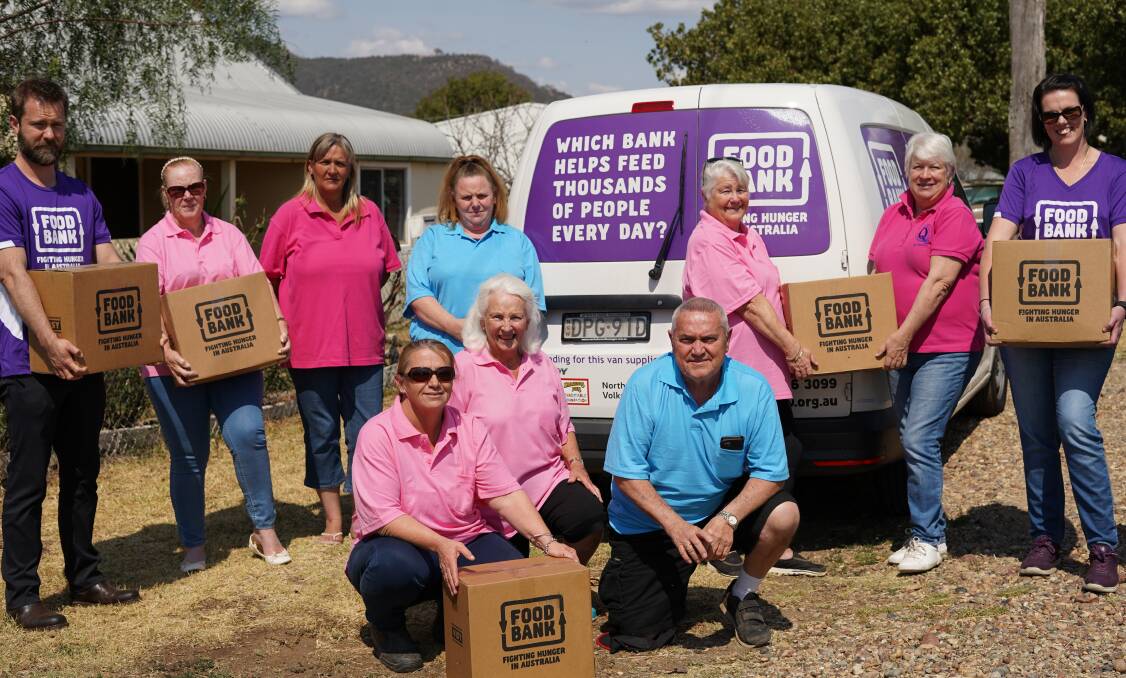
The bush might be hurting badly as drought cripples farm earnings and cash flow dries up in regional towns, but rural businesses are still at the frontline when it comes to giving valued food aid to families in strife all over Australia.
Foodbank, the nation's biggest provider of food and grocery relief to local charities, is largely a success because of produce and ingredient donations made by farmers and regional food processors.
Regional businesses ranging from meatworks operators Fletcher International Exports and JBS, to vegetable processor, Simplot, flour and sugar miller, Manildra Group, and big horticultural names Montague and Costa Group are among many agribusinesses contributing ingredients almost every month to fill grocery hampers for people in need.
About 40 per cent of the food relief organisation's donations come from businesses in regional communities or direct from farms.
Dairy companies Saputo, Lactilis, Fonterra and Lion give away 1 million litres of milk, SunRice donates a portion of its local crop throughput, and Queensland's big 14-property McDonald family-owned cattle business MDH donates about 12 tonnes of meat trimmings to be made into 220,000 sausages every year.
Fresh produce also floods in from farmers in regions like the southern NSW and northern Victorian irrigation heartland.
Foodbank's NSW-ACT operation collects almost 15,000 tonnes of fruit and vegetables annually from donations made in NSW's Riverina alone.
South Australian-based Miloto Family Farms, sends about 800t of potatoes from its growing and packing operation at Hillston in the western Riverina.
Griffith producers and marketers Keenan Produce and Gap Farm Management supply citrus and stone fruit.
Bountiful Riverina harvest
"We collect all sorts of stuff around here - potatoes, pumpkins, cherries, bok choy, sugar plums, oranges, melons, and maybe 40 or 50 bins of onions every four to six weeks," said former NSW Primary Industries Department horticulturist turned Foodbank produce co-ordinator, Lou Revelant.
"I'd send between 2000 and 3000 (produce) bins to Sydney every year.
"Almost 50pc is then redistributed back into regional areas."
Nationally, Foodbank collected enough supplies of fresh veggies, meat, milk and juices, and dry goods donated by supermarkets and food manufacturers, to provide an impressive 210,000 meals a day Australia-wide last year.
Increasingly those supplies are in demand in country areas where drought has sapped household finances on farms and in rural towns and villages.
Drought-related requests for help from church, rural support and charity groups, including the Country Women's Association, have driven a 15pc rise in demand on Foodbank NSW/ACT grocery reserves in the past year, according to chief executive officer, Gerry Andersen.
Drought help hampers
During the past two months a Foodbank distribution blitz saw special drought hampers packed in Sydney specifically for families in some of NSW's hardest hit drought areas - from Merriwa and Scone in the Upper Hunter Valley, to Tamworth, Gunnedah, Walgett, and Coonabarabran in the North West and south to Dubbo, Mudgee and Parkes.
Packed by volunteers and distributed by organisations such as CWA and school parents groups, the hampers included 20 different food products ranging from SPC tinned peaches and Safcol tuna, to sugar, tea, Vegemite, long life milk and Weet-Bix.
The deliveries also included personal care items such as toothpaste, deodorant and shampoo.
"These are products people are often forced to go without when they struggling to pay for groceries - some hadn't bought shampoo for two years," Mr Andersen said.
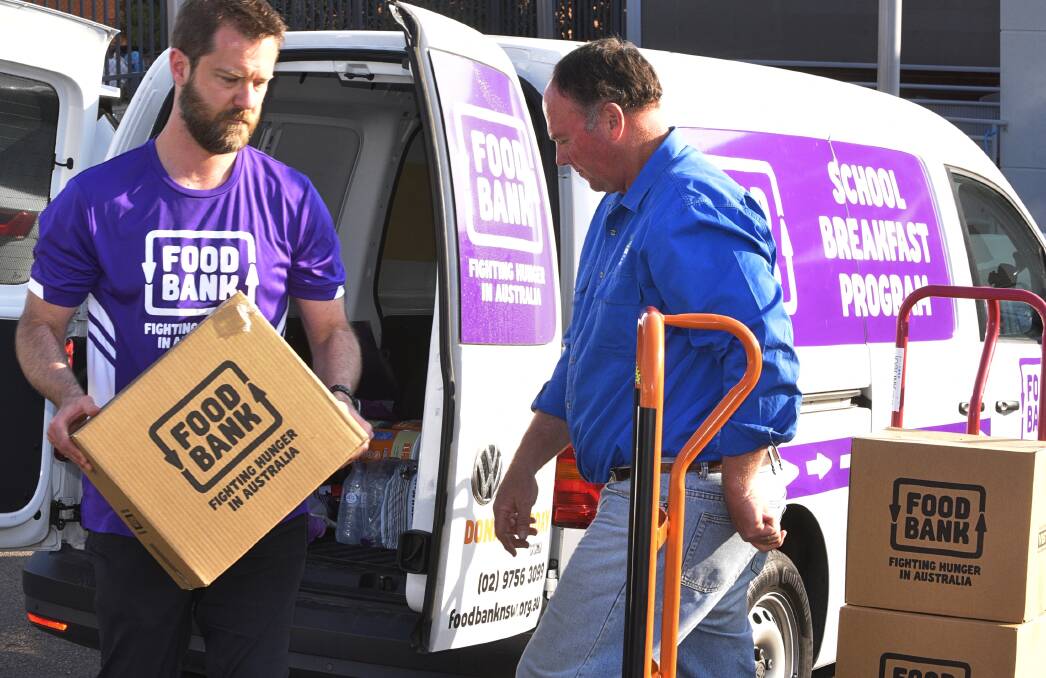
"In the past year we've distributed about $1m worth of food and personal care hampers, including to Walgett when the town's only supermarket burnt down in July."
Foodbank's hamper initiative began with 10,000 packs sent to drought hot spots last year.
The organisation has special insight on the drought's impact.
Rising regional demand
Foodbank is a vital source of food help for regional charities and schools increasingly reliant on its donations, and it has experienced how the big dry genuinely restricts supplies of some key food items, including rice, milk and meat, breakfast cereals and vegetables.
"Farmers have traditionally been among our most generous donors, regularly donating their produce - both perfect and imperfect - to help fight hunger," Mr Andersen said.
"We are determined to return that generosity.
"Our rural and regional communities need us now more than ever throughout the drought recovery period and beyond."
Responses from drought hamper recipients who had unexpectedly received hampers were emotional and inspiring.
Surprised and grateful
He said letters had flooded into Foodbank's Sydney head office from farmers who had discovered hampers in their roadside mail boxes.
Many grateful recipients, in mainstream NSW farming districts like Alectown near Parkes or Bellata, near Narrabri, expressed sincere appreciation for the food gift, and the kindness and supportive thoughts behind the donations.
Some described how successive cropping seasons had evaporated, or pregnant breeding stock had been sold off because water and feed had run out, or their struggles to pay for fuel and electricity.
Foodbank Australia's agriculture program manager, Jacqui Payne, said the number of Australians seeking food relief jumped 22pc in the past year, with less than two in five charities now believing they were properly meeting the needs of the city and country people they assisted.
Food insecurity widespread
Foodbank estimated a staggering one fifth of all Australians experienced food insecurity at some point in the past year.
She said in addition to all the practical stresses hitting rural families in drought, food insecurity also heightened psychological stress and reduced physical health.
About 70pc of "food insecure" Australians had experienced high or very high levels of psychological distress in the past year, compared to just 13pc of the general population, according to Foodbank's 2019 Hunger Report.
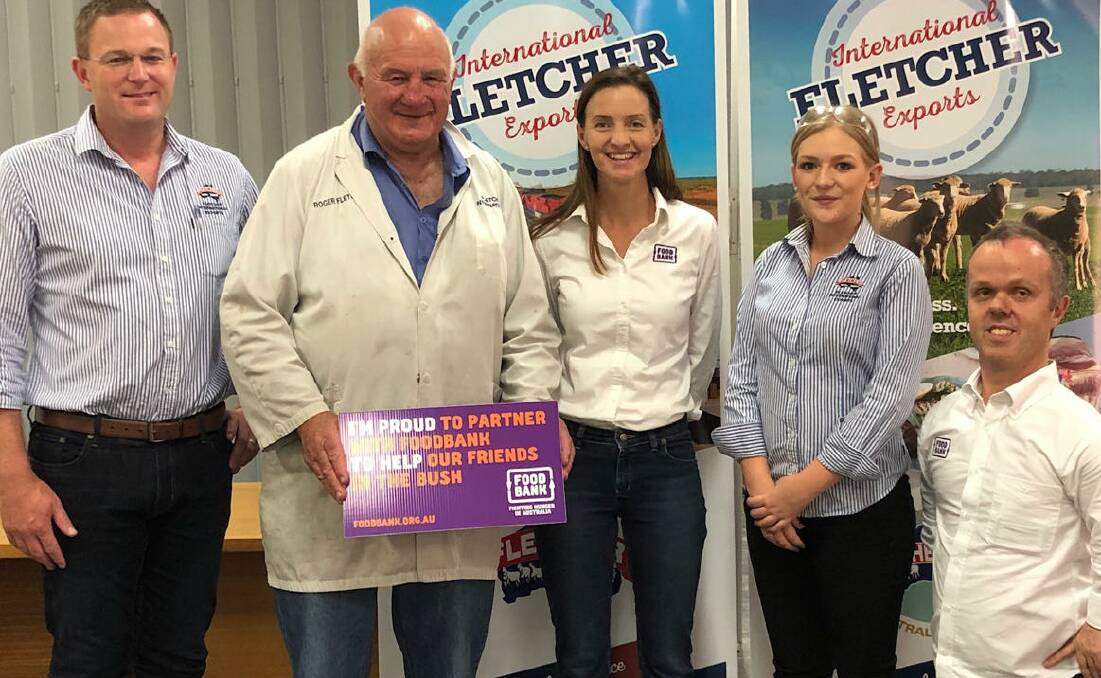
Ms Payne works with many of the national agribusiness groups contributing to Foodbank, including companies whose donations combine to make specific products such as pasta, pasta sauce and almost 1 million sausages a year.
Processors pitch in
A collaborative protein program which unites meat and freight industry companies began in 2015 when Dubbo meat processing heavyweight, Roger Fletcher, and Darren Thomas at Thomas Foods International began donating meat trim for processing, followed by support from the likes of Primo Foods (JBS); sausage casing supplier, Devro and, AHG Refrigerated Logistics.
In northern Victoria, Simplot's Echuca vegetable plant annually donates three production runs of pasta sauce - about 240,000 jars.
The sauce recipe includes canola oil donated by processor, MSM Milling, a joint venture partner with the Manildra Group, which also donates flour used by Melbourne's Rinoldi Pasta for Foodbank.
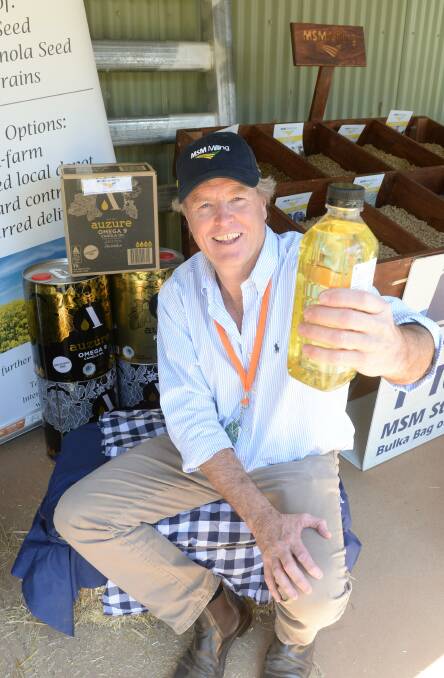
MSM principal and central NSW canola farmer, Bob MacSmith, said the pasta sauce project, which uses about 7000 litres of oil annually worth up to $10,000, resulted in at least 200,000 meals.
MSM buys canola from up to 1000 farmers, but frustratingly, drought has severely depleted its nearby NSW supplies, forcing it to mainly draw oilseed from Victoria and South Australia, at considerably higher costs.
"The collateral impact of the dry is having a big flow-on impact throughout the bush - on farmers, truck drivers, retailers in town, everybody," Mr MacSmith said.
"We've supplied the Foodbank program for six years, which in turn finds people in need all over the place, but we know regional areas have become a much bigger focus for food help at the moment."
- Start the day with all the big news in agriculture! Click here to sign up to receive our daily Farmonline.


